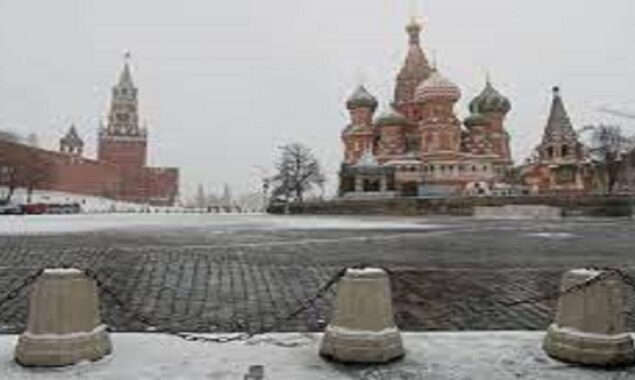
- Russia has struggled to keep up payments on $40 billion of outstanding bonds.
- U.S. Treasury Department blocked Moscow from making payments in late May.
- Russia was due to pay $100 million in interest on two bonds, one denominated in US dollars and another in euros.
- Russia’s bonds have an increasing level of ambiguities.
Russia edged nearer to default on Sunday in the midst of minimal sign that financial backers holding its worldwide bonds had gotten installment, proclaiming what might be the country’s first default in quite a while.
Russia has battled to keep up installments on $40 billion of extraordinary bonds since its intrusion of Ukraine on Feb. 24, which incited clearing sanctions that have successfully removed the nation from the worldwide monetary framework and delivered its resources distant to numerous financial backers.
Read more: Rogers, Shaw agree to begin mediation over the C$20 billion acquisition
The Kremlin has over and over said there is no justification for Russia to default except for can’t send cash to bondholders in light of authorizations, blaming the West for attempting to drive it into a counterfeit default.
The country’s endeavors to turn what might be its most memorable significant default on global bonds since the Bolshevik upset over 100 years back hit an inconceivable road obstruction when the U.S. Depository Department’s Office of Foreign Assets Control (OFAC) really impeded Moscow from making installments in late May.
“Since March we felt that a Russian default is likely unavoidable, and the inquiry was right when,” Dennis Hranitzky, head of the sovereign suit at law office Quinn Emanuel, told Reuters. “OFAC has interceded to respond to that inquiry for us, and the default is presently upon us.”
While a proper default would be generally representative given Russia can’t get globally right now and doesn’t have to thanks to rich oil and gas income, the shame would likely raise it’s getting costs in the future.
The installments being referred to are $100 million in interest on two bonds, one designated in U.S. dollars and one more in euros, Russia was because of pay on May 27. The installments had an effortless time of 30 days, which will lapse on Sunday.
Russia’s money service said it made the installments to its coastal National Settlement Depository (NSD) in euros and dollars, adding it has satisfied commitments.
In any case, it is impossible that subsidizes will track down their direction to numerous global holders. For some bondholders, not getting the cash owed in time into their records comprises a default.
With no accurate cutoff time determined in the outline, legal advisors say Russia could have the rest of the accompanying work day to pay the bondholders.
The lawful circumstance encompassing the bonds looks perplexing.
Russia’s bonds have been given with an uncommon assortment of terms, and a rising degree of ambiguities for those sold all the more as of late when Moscow was confronting sanctions over its extension of Crimea in 2014 and a harming episode in Britain in 2018.
Rodrigo Olivares-Caminal, seat in banking and money regulation at Queen Mary University in London, said clearness was required on what comprised a release for Russia on its commitment, or the contrast among getting and recuperating installments.
“This large number of issues are dependent upon understanding by a courtroom, however, Russia has not deferred any of its sovereign resistance and has not submitted to the ward of any court in any of the two outlines,” Olivares-Caminal told.
Here and there, Russia is in default as of now.
Read more: Codelco’s chairman predicts that the price of copper will remain “quite firm”
A council on subordinates has governed a “credit occasion” that had happened on a portion of its protections, which set off a payout on a portion of Russia’s credit default trades – instruments utilized by financial backers to guarantee openness to obligation against default.
This was set off by Russia neglecting to make a $1.9 million installment in gathered interest on an installment that had been expected toward the beginning of April. understand more
Until the Ukraine intrusion, a sovereign default had appeared to be incomprehensible, with Russia being evaluated speculation grade up to in no time before that point.
A default would likewise be uncommon as Moscow has the assets to support its obligation.
The OFAC had given a brief waiver, known as a general permit 9A, toward the beginning of March to permit Moscow to continue to pay financial backers.
It let it lapse on May 25 as Washington fixed sanctions on Russia, actually removing installments to U.S. financial backers and elements.
The slipped by OFAC permit isn’t the main hindrance Russia faces as toward the beginning of June the European Union forced sanctions on the NSD, Russia’s designated specialist for its Eurobonds.
Moscow has mixed lately to track down approaches to managing forthcoming installments and stay away from a default.
President Vladimir Putin marked a pronouncement last Wednesday to send off brief strategies and give the public authority 10 days to pick banks to deal with installments under another plan, recommending Russia will consider its obligation commitments satisfied when it pays bondholders in roubles.
“Russia saying it’s agreeing with commitments under the details of the security isn’t the entire story,” Zia Ullah, accomplice and head of corporate wrongdoing and examinations at law office Eversheds Sutherland told.
“On the off chance that you as a financial backer are not fulfilled, for example, on the off chance that you realize the cash is trapped in an escrow account, which actually would be the functional effect of what Russia is talking about, the response would be, until you release the commitment, you have not fulfilled the states of the bond.”
Read More News On
Catch all the Business News, Breaking News Event and Latest News Updates on The BOL News
Download The BOL News App to get the Daily News Update & Follow us on Google News.




